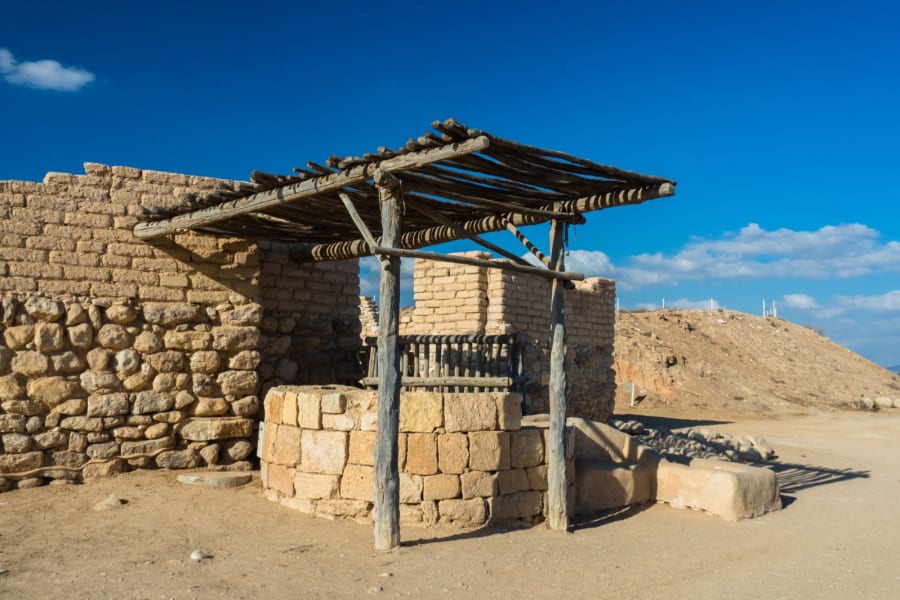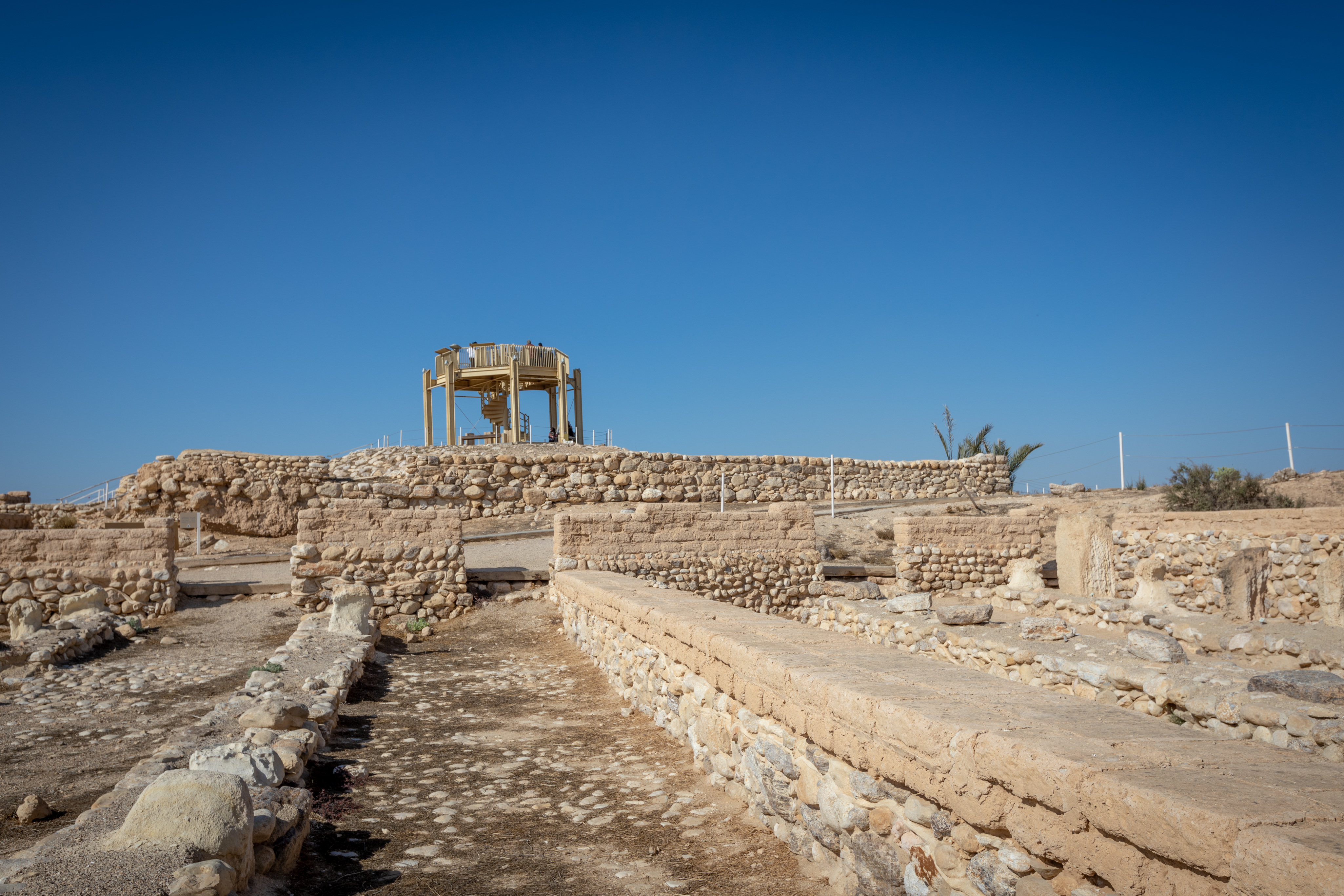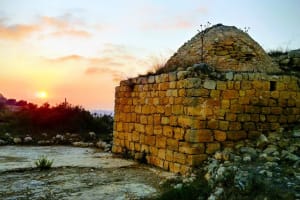Why Isaac was more successful against the Philistines than Abraham – and how modern Israel applies the lessons

The Bible gives two different explanations for origin of the name of the ancient city of Beersheba. One is connected to the oath (Beer: well; shevuah: oath) sworn there by Abraham and the Philistine king. “Therefore he called that place Beersheba, because the two of them swore an oath there” (Genesis 21:31).
The other appears in Isaac’s story. At the time when Isaac made a treaty with the Philistine king, his servants reported that during the digging of the newest well, they had also found water. This was the seventh well – Abraham’s three wells, which the Philistines had stopped up previously but which Isaac had reopened, and the fourth new well that Isaac himself had dug. “So he called it Shebah [seven]. Therefore the name of the city is Beersheba to this day” (Genesis 26:33).
At first glance, the two biblical passages may seem to contradict each other, yet in reality, they do not. Rather, they complement one another. Their dual explanation conveys a deeply important message — one that remains relevant to this very day.
In biblical times, the Philistines were Israel's fiercest enemies from the time of Abraham until the establishment of the first Jewish kingdom in the days of Saul and David. Though the Philistines were not the ancestors of today’s Palestinians, it is a fact that, in the 20th century, the Arab population of the British Mandate chose to identify with the name Palestine / Filastin. This was the name imposed by the Romans in 135 C.E. after crushing the Jewish revolt, when they renamed Judea in reference to Israel’s ancient enemies, the Philistines, in order to erase the memory of Jewish statehood. Today, the Palestinian population in the Gaza Strip lives precisely on the coastline of ancient Philistia, where Gaza along with Ashkelon, Ashdod, Ekron and Gath formed the Philistine pentapolis. It is no coincidence that the same ancient conflict echoes again today throughout the Holy Land. This, too, demonstrates the enduring relevance of the Bible’s timeless truths.
Abraham’s path: promise and legitimacy hand-in-hand
God promised Abraham that He would give the land of Canaan to his descendants. The patriarch did not seek to fulfill this promise by force or conquest. Instead, he respected the natural rights of the local peoples and pursued diplomatic and legal means. When he needed a burial place for his wife Sarah, Abraham purchased a plot of land containing the Cave of Machpelah near Hebron from Ephron the Hittite for 400 shekels of silver, in the presence of witnesses. In doing so, he acquired the field, and the cave became the first Jewish property in the Promised Land.

This meticulously documented land purchase is recorded in Scripture for a reason. It signals that the Jewish people’s right to the land rests not only on divine promise but also on ancient, legally valid acquisition.
Abraham not only purchased land but also sought to establish stable relations with the surrounding peoples. After a conflict arose over ownership of wells, he entered into a sworn peace agreement with the Philistine king at Beersheba. The place was named “Beer-Sheva,” the “Well of the Oath.” This peace treaty allowed Abraham to live for an extended period in peace within Philistine territory. Even though, after Abraham’s death, the Philistines violated the oath and stopped up the wells that had passed to his son Isaac, the treaty still reveals Abraham’s intent: he sought the fulfillment of the divine promise through diplomacy and a mutually affirmed peace.
In this, he resembled the early leaders of the modern Zionist movement. Theodor Herzl and his contemporaries believed that a homeland for the Jewish people could be secured through the consent of the great world powers, legal processes and international agreements. In the 1890s, Herzl negotiated with the Sultan of the Ottoman Empire and with European leaders. Just as Abraham purchased land from Ephron, so Jewish agencies acquired land from Arab landowners and built settlements. By 1948, land purchased by Jews accounted for roughly one-third of the territory of the future State of Israel, establishing a firm Jewish demographic presence. Indeed, the borders of the UN Partition Plan were shaped significantly by where Jewish settlements and landholdings already existed. Alongside diplomatic efforts (the Balfour Declaration, the League of Nations Mandate, the UN decision), these facts on the ground ensured that the Promised Land could become a genuine Jewish home.
Isaac’s path: establishing facts on the ground
Isaac, Abraham’s son, was forced to adopt a different strategy among the Philistines. God also blessed Isaac: he harvested a hundredfold, amassed great herds, and became exceedingly wealthy (Genesis 26:12–14). His success stirred envy and fear among the Philistines – so much so that their king (in violation of the oath once made to Abraham) ordered him to leave, saying, “Go away from us, for you are much mightier than we” (Genesis 26:16). The Philistines even stopped up every one of Isaac’s wells, originally dug by Abraham – an attempt to drive him out by cutting off the essential source of life in the desert. Blocking wells was effectively an act of war.
Isaac moved on to a valley and dug his father’s wells again, restoring them and giving them back their original names. When Isaac dug yet another well and his servants found fresh water in it, the Philistine herdsmen quarreled with him again, saying, “The water is ours!” Isaac moved on again and dug another well; they quarreled over that one as well. Finally, Isaac dug a third new well over which no dispute arose. His patient persistence bore fruit: by continually reestablishing his presence and securing the essentials for life, he made it clear that he would not be dislodged. Eventually, the Philistine king recognized that he could not prevail against him.
Isaac did not retreat – he secured his presence on the land. He “created facts on the ground.” He dug again and again, and stayed. Once it became clear that Isaac could not be intimidated, the Philistine king approached him and sought peace. He came with his entourage to Isaac’s camp and said, “We have certainly seen that the LORD is with you. So we said, “Let there now be an oath between us, between you and us; and let us make a covenant with you, that you will do us no harm, since we have not touched you” (Genesis 26:28–29). Isaac agreed. He prepared a feast, and they swore an oath at Beersheba – the same place where Abraham had sworn an oath with Abimelech a generation earlier. On that very day, Isaac received word that the newest well they had dug had also yielded water; he named it Shebah (“seven”). According to Scripture, from this point on the name Beersheba becomes inseparably linked to the digging of the seventh well.

Isaac’s story includes another important continuation: this mindset lived on within his family. Long years later, Jacob – Isaac’s son – said this to Joseph as he prepared to die: “Behold, I am dying, but God will be with you, and will bring you back to the land of your fathers. Moreover, I have given you one portion above your brothers, which I took from the Amorites with my sword and my bow.” (Genesis 48:21-22). Jacob, the bearer of the divine promises, openly states that sometimes the inheritance must be secured by force of arms.
Interestingly, Jacob’s life combined both approaches. On one hand, he also purchased land – a parcel at Shechem for a hundred pieces of money (Genesis 33:19) – thus following Abraham’s path of legal acquisition. On the other hand, when necessary, he did not shrink from conflict. The three generations – Abraham, Isaac, and Jacob – together reveal that inheriting the Promised Land required a multifaceted strategy: diplomacy, steadfast presence, and, at times, unavoidable armed self-defense.
The political legacy of Abraham and Isaac
After Herzl’s “Abrahamic” efforts, the Jewish people ultimately stepped into Isaac’s footsteps. David Ben-Gurion, Israel’s founding prime minister, led a new generation of the Zionist movement – one that did not shy away from armed conflict when survival and statehood were at stake. In 1947, the Jewish leadership accepted the UN Partition Plan, but local Arab leader – as well as the surrounding Arab nation – rejected it. The failure of compromise was immediately followed by war. Local Arab militias began fighting the Jewish communities after the UN Partition Plan was approved on November 29, 1947. Then following the Israeli Declaration of Independence on May 14, 1948, the surrounding Arab states attacked the newly declared Jewish state. The barely-born country was forged in a struggle for existence and not only defended itself but, through military strength, extended its control beyond the original partition borders. By the end of the War of Independence, Israel held roughly 78% of the biblical Land of Canaan (the remaining areas fell under Egyptian and Jordanian control).

Just as in Isaac’s story, where the Philistine king eventually acknowledged that “the LORD is with this man” and sought peace with him, so too has the international community since 1948 been compelled to accept the de facto Jewish state. However, from its establishment onward, Israel has repeatedly been forced to act on its own initiative: consider the preemptive strike in 1967 or today’s counterterrorism operations – often under heavy international criticism, yet guided by Middle Eastern realities.
Those regional realities have taught the Jewish people that a mere piece of paper or a promise often means little unless backed by strength. Like Isaac, Israel understands this region better than the distant Western powers observing from afar. Jewish historical experience also warns that, ultimately, the nation cannot rely unconditionally on the promises of other peoples. After two thousand years in the Diaspora, Jews have repeatedly felt deceived and betrayed; the tragic climax was the Holocaust, when much of the civilized world looked on passively as six million Jews were murdered.
Of course, Israel pursues peace and has signed numerous agreements – such as peace treaties with Egypt and Jordan, and the Abraham Accords. Yet it remains constantly aware that peace must also be maintained through concrete security measures. If words and signatures are not accompanied by genuine commitment or verifiable action, Israel is prepared to take the initiative into its own hands.
Through the oath sworn by Abraham and Isaac near Beersheba, the Bible presents two parallel paths toward the promised inheritance: the path of peaceful agreements and the path of active steadfastness. Israel embraces both. Abraham provided the model for granting moral and legal legitimacy to a just cause; Isaac’s path shows that in the Middle East, steadfast presence and the continual securing of one’s place on the land are equally indispensable.
Modern Israel — brought into being according to God’s plan — writes its contemporary history by combining these ancient lessons: reinforcing its legitimacy through treaties and diplomacy whenever possible, and creating facts on the ground whenever necessary.

Is All Israel News’ faith-based reporting important to you? Be part of it—help us continue by becoming a $5/month supporting partner.

The All Israel News Staff is a team of journalists in Israel.
You might also like to read this:
















